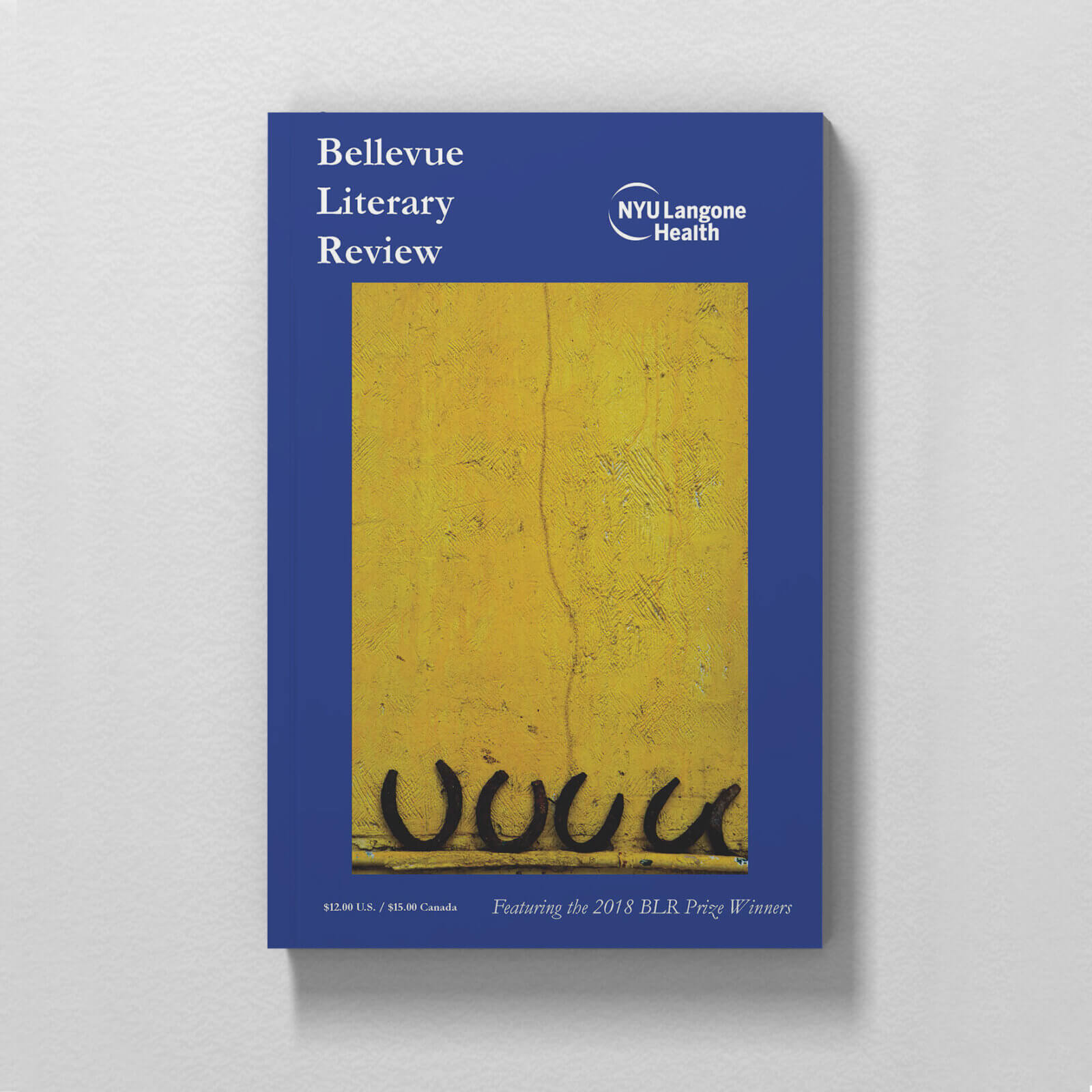Issue 34 Foreword

Danielle Ofri
Every issue of a literary journal is a literary salad of sorts. You never know what ingredients will be available each time, so you can never predict the final product. We begin with nearly 2,000 submissions that run the gamut in style, theme, perspective, length, and form. And for the BLR prizes, there’s the additional wild card of which contest submissions will appeal to the judges’ unique tastes.
Elizabeth Crowell, winner of the Felice Buckvar Prize for Nonfiction, writes about the unsettling middle ground of cancer. In her essay “Cancer, So Far,” selected by Rivka Galchen, she writes: “Six rounds of chemo and I am finally done… But now”—she is horrified to learn—“I am under surveillance.” Honorable Mention in nonfiction is awarded to Laura Johnsrude for her essay “Drawing Blood” and Martha Wolfe for “The Reluctant Sexton.”
Gabriel Spera’s poem, “Throat”—selected as the winner of the Marica and Jan Vilcek Prize for Poetry by Rachel Hadas—dissects the assault of cancer in a sequence of twelve Elizabethan sonnets. “He can almost feel his muscles / and blood thinning, like his hair, the cells in bone / and vein vanishing like rats from a doomed vessel.” Honorable Mention is awarded to Noah Stetzer for his poem “The Game of Catch.”
“Atrophy,” by Lauren Erin O’Brien, was selected by Geraldine Brooks as the winner of the Goldenberg Prize for Fiction. This story—O’Brien’s first ever fiction publication!—traces the temptation of talismans for the mother of a sick child. Honorable Mention in fiction is awarded to Sheryl Louise Rivett for her story “Full Buck Moon” and Faith Shearin for “Bamboo Forest.”
This year’s Liebowitz Prize for Student Writing goes to Janna Minehart, a photographer-turned-medical-student who set about documenting cancer survivors. Her struggle to breach the divide between camera and subject is paralleled by that between white coat and patient.
Once the editors pull the issue together, we are always delighted to see what surprises turn up. Sometimes it’s first-time publications such as that of our fiction winner, as well as Brendan Missett’s striking story, “Labor.” And sometimes, it’s familiar faces, such as poets Janet Chalmers, Muriel Nelson, Kaitlin LaMoine Martin, and Noah Stetzer. We also welcome back fiction writers Jennifer Lee, Alok Khorana, and Ivan Prashker. It turns out that Alok’s and Ivan’s debut BLR stories also appeared in the same issue, just over a decade ago, in the Fall 2007 issue.
Alok’s long-suffering intern, Vivek, reappears in “Responsibility,” and now must juggle a downwardly spiraling malaria patient—whose military comrades threaten to beat up the doctors if cure isn’t achieved—with a secret admirer who tucks sappy love notes in his medical charts.
Ivan Prashker also traffics in tragicomic chaos, though centered around gritty New Yorkers whose weapons of choice are manual typewriters and Hell’s Kitchen epithets. The protagonist of “The Second Son” is hunting down the grave—and the ghost—of a brother he’s never met.
The BLR maintains a special focus on health, illness and disease, but doctoring can come in all forms, even a “Tree Surgeon,” as in the poem by Alecia Beymer. In “Pharaoh Hounds,” by, Stefani Nellen, it is a physical therapist who provides the doctoring for a champion runner, but not with standard therapy. For Frida Kahlo, in Elisavet Makridis’s poem, “Intimate Contact,” it is weighted bags of sand to straighten her spine. ,
Sometimes the treatment is self-doctoring. Craig Curtis’s protagonist in the story “Tithonus” is determined to fight off aging with sheer curmudgeonly spite. In the story “Leviathan,” by Jennifer Lee, the self-doctoring for Alzheimer’s disease involves a bottle of fine vodka and an equally fine spot in the woods.
The BLR is deeply grateful to the Goldenberg, Buckvar, Vilcek, and Oratz-Knapp families for their generous endowment of the literary prizes. Special thanks to our judges—Geraldine Brooks, Rachel Hadas, and Rivka Galchen for contributing their literary sensibilities to the creation of our 34th issue of the Bellevue Literary Review. We hope you find this issue’s salad to your taste.

